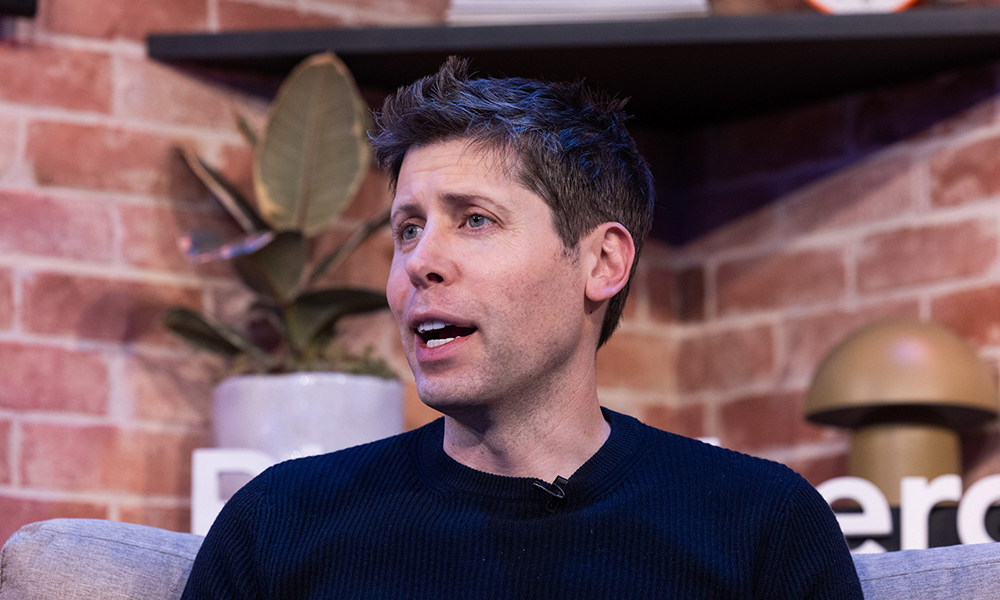
对于OpenAI首席执行官萨姆·奥特曼(Sam Altman)来说,辍学创办他的第一家初创公司Loopt的风险并没有看起来那么大。
事实上,根据奥特曼的说法,2005年离开斯坦福大学的决定并没有经过特别的考虑,而是颇有些意料之外。
奥特曼在他的母校、位于圣路易斯的私立约翰·巴勒斯学校接受采访时说:“这不像是我本应该有的人生计划,但这个意料之外的机会确实出现了。它看起来是一件值得尝试的、有趣的事情,而且重要的是,我知道我还有机会回头。我认为这是大多数风险决策背后的关键因素。大多数事情并不是一条单行线。你可以去尝试,万一不成功,回头就是了。”
也就是说,如果Loopt的事业失败了,奥特曼可以重回大学并获得学士学位。奥特曼离开斯坦福大学创办Loopt时只有19岁。后来,这家提供早期定位服务的初创公司取得了不大不小的成功:事实证明定位技术有广阔的前景,位置服务很快成为从银行到游戏,再到新闻的几乎所有移动应用程序的关键组成部分,然而Loopt这家公司并没有很好地站稳脚跟。最终,该公司于2012年以4340万美元的价格被出售给绿点银行(Green Dot),奥特曼也因此在硅谷有了一定的名气。
奥特曼所冒的风险最终得到了回报。奥特曼表示,尽管他并不认为创办初创公司的决定一开始就有那么大风险,但由于整个社会常常是厌恶风险的,这使得他的决定看上去比实际所冒的风险更大。他说:“总的来说,人们对风险的判断有严重错误。”。
在奥特曼看来,离开大学去创业的风险并不很大,因为20世纪50年代和60年代的传统职业道路——上大学,找份工作,并在职业生涯的大部分时间里服务于同一家公司——所给予的回报不再像过去那样高。
奥特曼说:“这条路越来越走不通了。我认为传统的职业发展路径现在即使谈不上彻底失灵,也已经是非常有挑战性了。人工智能可能会进一步颠覆传统职业发展路径,带来更多变化。”
奥特曼补充道,当今的职业道路为自我纠正错误提供了更多机会。有大量证据表明,与他们的前辈相比,80后、90后,以及00后的员工更愿意换工作,也不会因此背上任何负面形象。在疫情最严重的时期,美国的就业市场蓬勃发展,换工作的诱惑就更大了。即使目前就业市场有所降温,年轻员工仍然蠢蠢欲动,从未停止关注新的工作机会。
因此,奥特曼建议台下的高中生听众说,选择规避风险实际上是选择了过剩的稳定性。他说:“在当今这个不断变化的世界里,真正的风险其实是不去尝试那些可能真能给你机会的事情。”
奥特曼还警告说,过于谨慎可能会让人留有遗憾。奥特曼说,如果你没冒过任何风险,“10年、20年、30年后,当你回顾自己的职业生涯,你可能会说,‘我真希望尝试过我真正想尝试的事。’只要你觉得你以后有可能这么说,那你就应该大胆去做。”
考虑到听众的身份,奥特曼没有忘记做一个申明。他开玩笑说:“请不要回家告诉父母,奥特曼告诉过你退学没什么大不了。”(财富中文网)
译者:珠珠
对于OpenAI首席执行官萨姆·奥特曼(Sam Altman)来说,辍学创办他的第一家初创公司Loopt的风险并没有看起来那么大。
事实上,根据奥特曼的说法,2005年离开斯坦福大学的决定并没有经过特别的考虑,而是颇有些意料之外。
奥特曼在他的母校、位于圣路易斯的私立约翰·巴勒斯学校接受采访时说:“这不像是我本应该有的人生计划,但这个意料之外的机会确实出现了。它看起来是一件值得尝试的、有趣的事情,而且重要的是,我知道我还有机会回头。我认为这是大多数风险决策背后的关键因素。大多数事情并不是一条单行线。你可以去尝试,万一不成功,回头就是了。”
也就是说,如果Loopt的事业失败了,奥特曼可以重回大学并获得学士学位。奥特曼离开斯坦福大学创办Loopt时只有19岁。后来,这家提供早期定位服务的初创公司取得了不大不小的成功:事实证明定位技术有广阔的前景,位置服务很快成为从银行到游戏,再到新闻的几乎所有移动应用程序的关键组成部分,然而Loopt这家公司并没有很好地站稳脚跟。最终,该公司于2012年以4340万美元的价格被出售给绿点银行(Green Dot),奥特曼也因此在硅谷有了一定的名气。
奥特曼所冒的风险最终得到了回报。奥特曼表示,尽管他并不认为创办初创公司的决定一开始就有那么大风险,但由于整个社会常常是厌恶风险的,这使得他的决定看上去比实际所冒的风险更大。他说:“总的来说,人们对风险的判断有严重错误。”。
在奥特曼看来,离开大学去创业的风险并不很大,因为20世纪50年代和60年代的传统职业道路——上大学,找份工作,并在职业生涯的大部分时间里服务于同一家公司——所给予的回报不再像过去那样高。
奥特曼说:“这条路越来越走不通了。我认为传统的职业发展路径现在即使谈不上彻底失灵,也已经是非常有挑战性了。人工智能可能会进一步颠覆传统职业发展路径,带来更多变化。”
奥特曼补充道,当今的职业道路为自我纠正错误提供了更多机会。有大量证据表明,与他们的前辈相比,80后、90后,以及00后的员工更愿意换工作,也不会因此背上任何负面形象。在疫情最严重的时期,美国的就业市场蓬勃发展,换工作的诱惑就更大了。即使目前就业市场有所降温,年轻员工仍然蠢蠢欲动,从未停止关注新的工作机会。
因此,奥特曼建议台下的高中生听众说,选择规避风险实际上是选择了过剩的稳定性。他说:“在当今这个不断变化的世界里,真正的风险其实是不去尝试那些可能真能给你机会的事情。”
奥特曼还警告说,过于谨慎可能会让人留有遗憾。奥特曼说,如果你没冒过任何风险,“10年、20年、30年后,当你回顾自己的职业生涯,你可能会说,‘我真希望尝试过我真正想尝试的事。’只要你觉得你以后有可能这么说,那你就应该大胆去做。”
考虑到听众的身份,奥特曼没有忘记做一个申明。他开玩笑说:“请不要回家告诉父母,奥特曼告诉过你退学没什么大不了。”(财富中文网)
译者:珠珠
For OpenAI CEO Sam Altman, dropping out of college to launch his first startup, Loopt, wasn’t as big a risk as it might seem.
In fact, in Altman’s telling, the decision to leave Stanford in 2005 was not particularly calculated, but rather somewhat unexpected.
“This was not like my life plan, but this other opportunity came up,” Altman said during an interview at his private grade school John Burroughs School in St. Louis. “It seemed like a really fun thing to try, and importantly I realized that I could go back. I think that’s the key to most risk. Most things are not a one-way door. You can try something, [and] if it doesn’t work out, you can undo it.”
In this case, Altman could have always gone back to college and earned a bachelor’s degree if things with Loopt didn’t pan out. Altman was just 19 years old at the time when he left Stanford to start Loopt, which offered an early version of location services. The startup turned out to be a moderate success: The technology proved more than promising, with location services soon becoming a critical component of virtually every mobile application from banks to games to news, but Loopt never found its footing. The company eventually sold to the banking firm Green Dot in 2012 for $43.4 million, which notably put Altman on the map in Silicon Valley.
So the risk for Altman ultimately paid off. Though he doesn’t necessarily see the decision to launch a startup as all that risky to begin with, society at large is often risk-averse, making his decision seem more drastic than it should have been, according Altman. “Generally I think people are horribly miscalibrated on risks,” he said.
Leaving college to pursue a startup wasn’t wasn’t such a big risk in his mind because the traditional career path of the 1950s and 60s—in which someone went to college, got a job, and stayed at the same company for the majority of their career—was no longer as rewarding as it was in the past, according to Altman.
“Then it gradually stopped working,” Altman said. “Now I think the traditional path is, I won’t say falling apart, but it’s quite challenged. And AI will probably disrupt things even more and put even more variance in the traditional path.”
Current-day career paths offer more opportunity for self-correcting mistakes, Altman added. There is substantial evidence that millennials and Gen Z workers are much more open to switching jobs than previous generations and don’t attach any negative stigma to doing so. During the booming job market of the pandemic, switching jobs became extremely lucrative. But even the current cooling of the job market has done little to temper the restlessness of younger employees and their knack for eyeing other jobs.
With that in mind, Altman encouraged the audience of high school students to consider risk as opting for too much stability. “In what is now a very dynamic world, the risky thing is to not go try the things that might really work out,” he said.
Altman also warned against the regret that can come with an overly cautious approach. Without any risk, “you kind of look back at your career, 10, 20, 30 years later and say, ‘Man I wish I had tried the thing I really wanted to try,’” Altman said. “You should put a huge premium on doing that anytime you feel like you might say that later.”
Mindful of his audience, Altman did make one thing clear. “Please don’t go home and tell your parents I’ve told you to drop out of college,” he joked.






